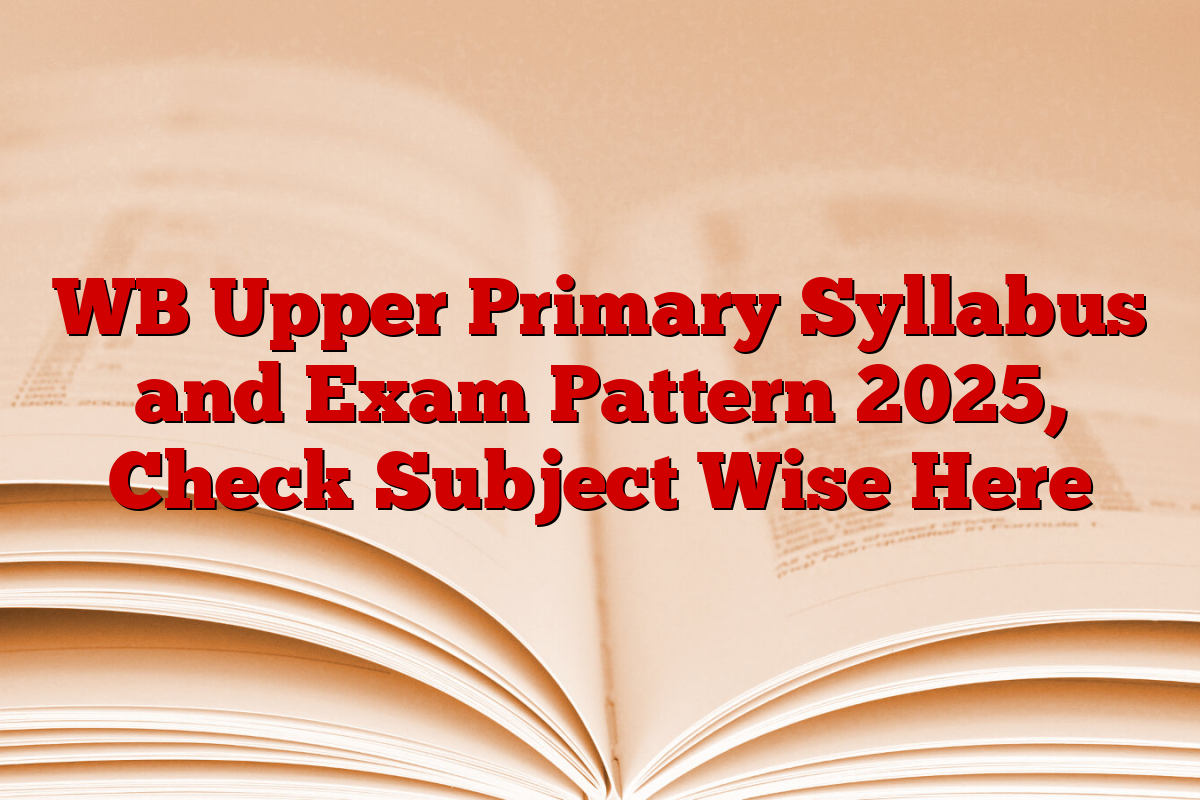The West Bengal School Services Commission (WBSSC) has released the official WB Upper Primary Tate Syllabus and Exam Pattern 2025 on its website www.westbengalssc.com. The examination is designed for candidates, which is for the goal of becoming a teacher for class V for VIII in government and government aided schools in West Bengal. Candidates should carefully review the subject-wise course and paper structure to plan their preparation effectively.
WB upper primary course 2025
WB upper primary TET exam is an important step for graduates with a B.Ed. Qualifications that want to secure teaching positions in upper primary schools. Each section is designed not only to assess the knowledge of the subject, but also to teach merit and education, ensuring that the candidates are class-class. The course focuses on five main classes:
- Child development and education
- Language I (English)
- Language II (Bengali)
- Mathematics and Science (for candidates applying as Mathematics/Science Teachers)
- Social Studies/Social Sciences (for candidates applying as social studies teachers)
WB upper primary exam pattern 2025
The WB upper primary TET paper II is conducted from class VI to VIII. There are 150 multi-favorite questions in the examination that take each 1 marks. Candidates get 2 hours and 30 minutes to complete the paper. There is no negative marking. This structure ensures that candidates are evaluated on both the main subject knowledge and essential teaching skills.
| WB upper primary exam pattern 2025 | ||
| Section | Question | Mark |
| Child Development and Education (mandatory) | 30 | 30 |
| Language I: English (mandatory) | 30 | 30 |
| Language II: Bengali (mandatory) | 30 | 30 |
| Mathematics and Science (for Mathematics/Science Teachers) | 60 | 60 |
| Social Studies (For Social Studies Teachers) | 60 | 60 |
| Total | 150 | 150 |
WB upper primary course detailed
1. Child Development and Education (30 Questions)
- Child development concepts and their relationship with learning
- Principle of child development
- Effect of heredity and environment
- Socialization procedures and the role of teachers, parents and colleagues
- Principle by piaget, vygotsky, and kohlberg
- Inclusive education and children with special needs
- Learning process, education, problem-solution and inspiration
2. Language I – English (30 Questions)
- Understanding of reading (prose, drama, poetry)
- Grammar and vocabulary-based questions
- Teaching of language development
- Role of listening, speaking, reading and writing skills
- Teaching challenges in multilingual classes
- Language acquisition theory and remedial teaching
3. Language II – Bengali (30 questions)
- Reading Comprehension Road (literary, story, scientific or discretionary)
- Grammar and vocabulary questions
- Language learning education
- Language work in communication
- Solution of errors and challenges in language classes
- Assessment of language skills and remedial strategies
4. Mathematics and Science (60 Questions)
- Mathematics materials: algebra, geometry, ratio and ratio, symmetry, mention, data handling, construction and academic issues.
Science material: food, material, living world, speed, electricity, natural phenomena, resources and educational issues.
5. Social Studies (60 Questions)
- History: Early society, first farmer, state, empire, new ideas, contact with distant land.
- Geography: Resources, Agriculture, Environment.
- Civil/Political Science: Diversity, Democracy, Government, Local Governance, Constitution, Justice, Gender and Media.
- Education: Important thinking, project work, class procedures and methods of evaluation.
sharing is Caring!

